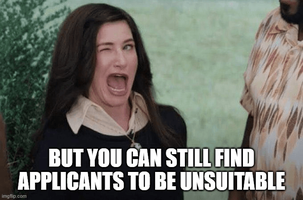You talk a lot about encouraging others to ignore what MA is saying, that restrictions are still valid. But are you willing to pay them for all their losses and the damage to their lives, if they do get charged. Remember, even a charge that is dismissed will have costs to the person changed, and it this case an extended legal battle is likely.Maybe.
But it's up to you if you choose to obey. You've got every right to carry, and the highest court in the land agrees. You're on sounder legal footing than your CoP is.
They don't need someone to go to jail and ruin their lives to launch a legal challenge. It would be enough that a new applicant who requested unrestricted was given restricted and then appealed and lost. No one has to face criminal charges to fight this.



